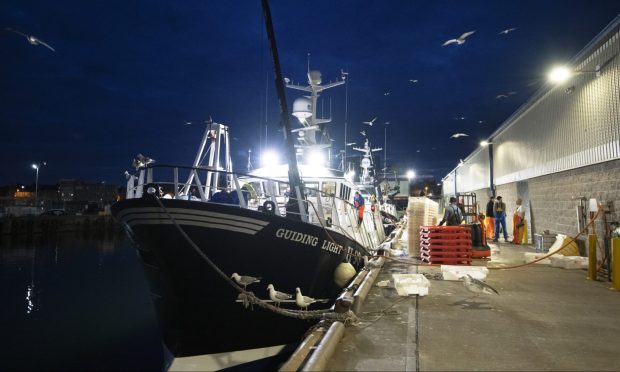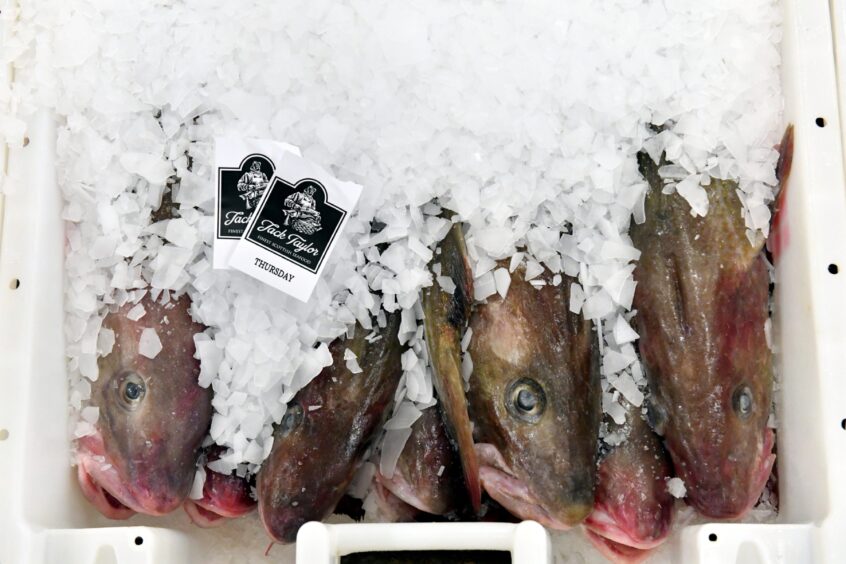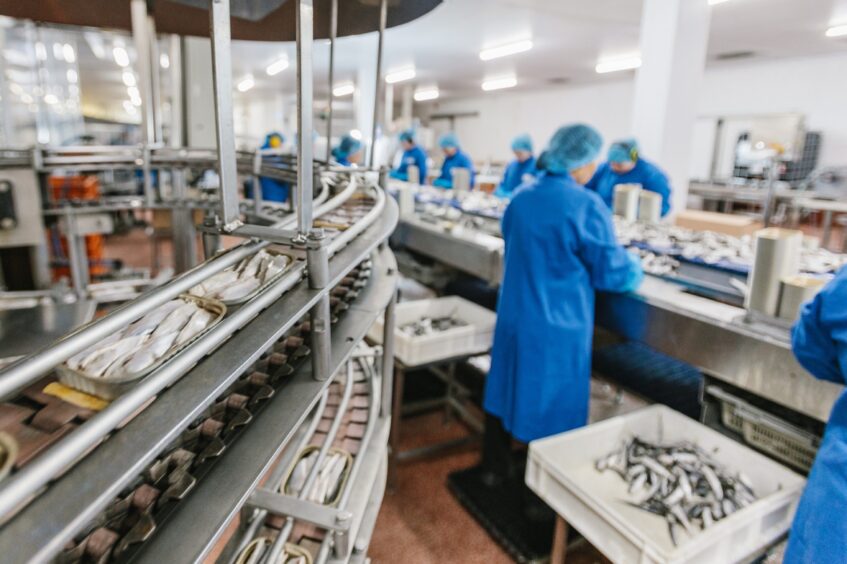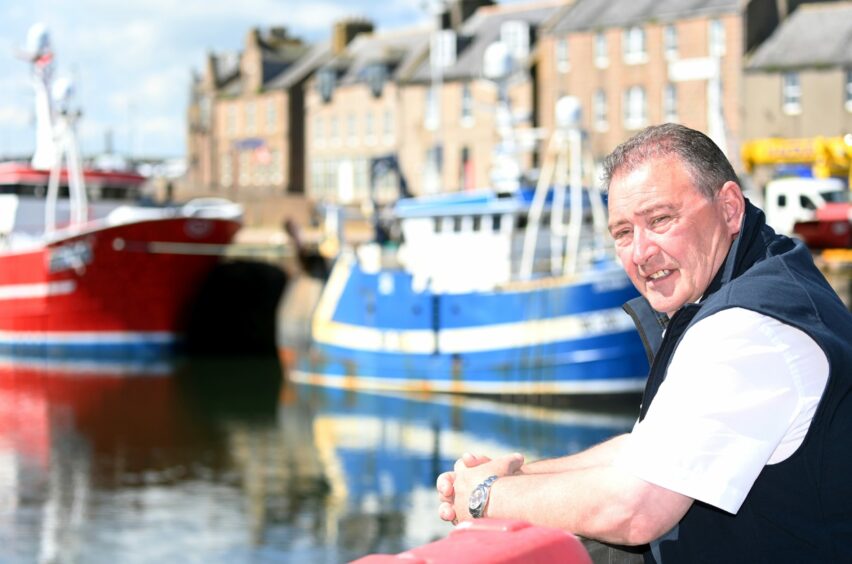The Scottish fishing industry is at risk of being “mortally wounded” by new skilled worker visa rules, a leading figure in the north-east sector has claimed.
And consumers could be facing double-digit inflation in the price of fish and other seafood caught or harvested in the seas off Scotland, she warned.
The comments are from Aberdeenshire councillor Ann Bell.
She made them in a letter to Scottish and UK ministers in her role as chairwoman of the North East Scotland Fisheries Development Partnership (NESFDP).
And former trawlerman Jimmy Buchan, now chief executive of the Scottish Seafood Association (SSA), is fully behind her.
Scottish vessels landed fish and shellfish worth a total of £617 million in 2022.
But the industry north of the border is now suffering “acute” shortages of labour, both on fishing vessels and in processing plants, Mrs Bell said.
She added: “Over the past two decades the processing sector has come to rely on EU workers, particularly in the north-east of Scotland, where unemployment is low and there is fierce competition for labour from the oil, gas and renewables sectors.”
Poor response from UK workers to industry recruitment campaign
Recent recruitment campaigns backed by industry body Seafish delivered only “single figure new-starts” into the sector from the UK workforce, Mrs Bell said in her letter.
She continued: “Seafish has carried out a detailed economic analysis of the impact of the skilled worker visa changes on the seafood sector.
“This concludes that these changes will have a direct impact on the catching and processing sectors, as large parts of the fleet and processing businesses are reliant on non-UK workers to address labour shortages.”
What are the visa rule changes?
On April 4 the minimum salary threshold for a skilled worker visa will rise from £26,200 to £38,700 per annum.
Individual occupation “going rate” thresholds will rise in line with the median full-time wage for equivalent jobs in 2023.
The UK Government will also end the 20% going rate salary discount for “shortage occupations”.
What could this mean for the price of fish?
Seafish has estimated that for the under 12m (39ft) prawn fleet – a key part of the north-east fishing industry – to meet the new requirements, prices paid by processors/wholesalers to vessel operators will need to rise by 33%.
And it is estimated the price processors need to charge retailers and foodservice sector buyers will need to increase by 14.5% and 15.6% respectively.
Mrs Bell said: “At a time of high food price inflation, it isn’t hard to see the likely effect on consumers already suffering in a cost-of-living crisis.
“Seafish also concluded there could be an impact on the competitiveness of the UK export trade in high-value shellfish, which in 2022 was worth £228m.
The increased salary threshold for skilled worker visas “effectively closes” the overseas recruitment route for the industry in Scotland, NESFDP’s chairwoman said.
Rule changes ‘likely to divert UK fishing vessels to foreign ports’
She added: “To mitigate costs, processors will look to cut prices on the quayside for the purchase of landings.
“This is likely to divert UK fishing vessels to foreign ports, where they will access better prices.
“At a time when quota levels are increasing, government policy is effectively reducing the capacity and profitability of UK fish processors.”
Mrs Bell went on: “We believe the impacts of the skilled workers visa changes have not been fully assessed.
“The challenges it creates will differ between sectors, with the seafood sector perhaps mortally wounded by this policy.”
Derogations on a sector-by-sector basis are “the only available route for the seafood sector’s survival”, she said.
She added: “We would strongly advocate that ministers take into consideration the full consequences of their decisions on a crucial sector in north-east Scotland and coastal communities around the UK.”
And warning of the potential risk to sales of Scottish seafood overseas, she said: “The industry is heavily focused on exports – 80% of fish landed in the UK is exported.
“Our seafood products must remain globally competitive if the sector is to survive.”
Asked if Mrs Bell’s letter represented the wider industry view, Mr Buchan said: “I very much concur.
“It is of great concern for SSA members who are already under pressure to recruit and retain, without added costs which are not economically viable.”
Mrs Bell is a Liberal Democrat councillor for Fraserburgh and District.
NESFDP is a cross party, cross-sectoral group hosted by Aberdeenshire Council.
Immigration powers lie in London
Immigration policy is set by the UK Government.
The Department for Environment, Food and Rural Affairs has been approached for comment.
Read more: Tory minister aims to get more Scots into north-east seafood factories





Conversation